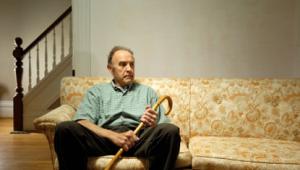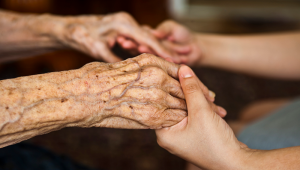A ‘major cultural shift’ is needed to tackle the causes of poor treatment of elderly people in English care homes and hospitals, the Commission on Improving Dignity in Care for Older People said today.
In its final report, the commission, set up by the NHS Confederation, Age UK and the Local Government Association, recommended establishing basic criteria for carers.
These would form basic rules for dignified care in every hospital and home, it said.
The criteria are: treat those in care as they wish to be treated, with respect, dignity and courtesy; always remember nutrition and hydration needs; encourage formal and informal feedback from older people to improve practice; always challenge poor practice; and report poor practice where appropriate.
Practical advice will now be issued explaining how those working in the NHS and care homes can implement these changes.
Other recommendations in the Delivering dignity final report include an evaluation of how staff assess patients' needs, to ensure they have adequate time to understand individual preferences. It also called for the quality standards for patient experience, recently produced by the National Institute for Health and Clinical Excellence, to be adopted as a measure of care quality.
In a joint foreword to the report, Age UK, NHS Confederation and the Local Government Association said: ‘We set up the commission because older people and their loved ones deserve so much better.
‘Delivering dignity will mean changing the way we design, pay for, deliver and monitor care services as the numberof older people in care continues to grow. Alongside the consistent application of good practice and the rooting out of poor care, we need a major cultural shift in the way the system thinks about dignity, to ensure care is person-centred and not task-focused.’
The final report follows recommendations from the commission earlier this year on how to better regulate and train care home staff.
February’s recommendations received widespread support from more than 230 health and social care organisations, patient groups and individuals across the country in a consultation. These responses led the commission to examine the creation of a list of 'always events' – care principles that should never be overlooked.
Plans for a draft bill on social care were announced by the government in last month's Queen's Speech, which will also set out ministers’ response to the Dilnot review that proposed reforms to the funding of adult social care.
Responding to the commission’s report, care services minister Paul Burstow said: ‘Kindness and compassion, dignity and respect must be central to care, whoever provides it and wherever it is provided.
‘While many of the recommendations in this welcome report are addressed to managers and frontline staff in the NHS and social care, the government is determined to play its part in delivering dignity.’





















